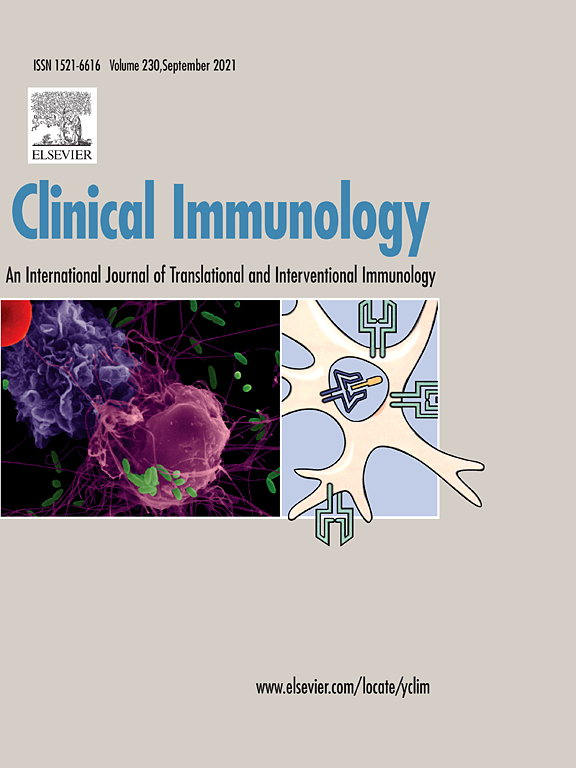Neurologic adverse events among 704,003 first-dose recipients of the BNT162b2 mRNA COVID-19 vaccine in Mexico: A nationwide descriptive study.
Dr. Miguel García-Grimshaw a,1, Dra. Santa Elizabeth Ceballos-Liceaga b,1, Dra. Laura E. Hernández-Vanegas c, Dr. Isaac Núñez d, Noé Hernández-Valdivia b, Dr. Daniel Amado Carrillo-García b, Dra. Anaclara Michel-Chávez a, Dr. Javier Andrés Galnares-Olalde c, Dr. Guillermo Carbajal-Sandoval b, Dra. María del Mar Saniger-Alba a, Dr. Roger A. Carrillo-Mezo e, Dr. Sergio Fragoso-Saavedra a,f, Dra. Alba Espino-Ojeda g, Dr. Carlos Blaisdell-Vidal g, Dr. Juan Luis Mosqueda-Gómez h, Dr. Juan Sierra-Madero i, Dr. Rogelio Pérez-Padilla j,
Dr. José Luis Alomía-Zegarra b, Dr. Hugo López-Gatell b, Dr. José Luis Díaz-Ortega k, Dr. Gustavo Reyes-Terán l,2, Dr. Antonio Arauz b,b, Dr. Sergio Iván Valdés-Ferrer a,i,m,b,*.
a Department of Neurology and Psychiatry, Instituto Nacional de Ciencias M´edicas y Nutrici´on Salvador Zubir´an, México City, México
b Secretaría de Salud, Gobierno de México, México
c Department of Neurology, Instituto Nacional de Neurología y Neurocirugía Manuel Velasco Suárez, México City, México
d Department of Internal Medicine, Instituto Nacional de Ciencias Médicas y Nutrición Salvador Zubirán, México City, México
e Department of Neuroradiology, Instituto Nacional de Neurología y Neurocirugía Manuel Velasco Suárez, México City, México
f Programa de Estudios Combinados en Medicina (MD/PhD program), Facultad de Medicina, Universidad Nacional Autónoma de México, México City, México
g Instituto Mexicano del Seguro Social, Mexico City, México.
h Hospital Regional de Alta Especialidad del Bajío, León, México
i Department of Infectious Diseases, Instituto Nacional de Ciencias Médicas y Nutrición Salvador Zubirán, México City, México
j Instituto Nacional de Enfermedades Respiratorias Ismael Cosío Villegas, Mexico City, Mexico
k Centro Nacional para la Salud de la Infancia y la Adolescencia, Mexico City, Mexico
l Comisi´on Coordinadora de Institutos Nacionales de Salud y Hospitales de Alta Especialidad, Mexico City, Mexico
m Feinstein Institutes for Medical Research, Manhasset, NY, USA
Originally published / june 18, 2021 / https://doi.org/10.1016/j.clim.2021.108786
Abstract
mRNA vaccines against SARS-CoV-2 are remarkably effective. Limited information exists about the incidence of adverse events following immunization (AEFI) with their use. We conducted a prospective observational study including data from 704,003 first-doses recipients; 6536 AEFI were reported, of whom 65.1% had at least one neurologic AEFI (non-serious 99.6%). Thirty-three serious events were reported; 17 (51.5%) were neurologic (observed frequency, 2.4/100,000 doses). At the time of writing this report, 16/17 cases had been discharged without deaths. Our data suggest that the BNT162b2 mRNA COVID-19 vaccine is safe; its individual and societal benefits outweigh the low percentage of serious neurologic AEFI. This information should help to dissipate hesitancy towards this new vaccine platform.
Methods
This prospective observational cohort study on all adverse events following the first dose of the BNT162b2 mRNA COVID-19 vaccine from December 24, 2020, to February 12, 2021, in Mexico, was performed using a dataset comprising daily updated information on AEFI, obtained from the General Board of Epidemiology (in Spanish, Direcci´on General de Epidemiología) of the Mexican Ministry of Health. The cut-off date for this data and follow-up of hospitalized cases was February 18, 2021. The Mexican Epidemiological Surveillance System monitors AEFI throughout >23,300 medical units, distributed across the country, including public, social security-managed, and private units. This is a passive surveillance system where events are reported either by the health institution or directly by the recipient. Surveillance is carried out for 30 days after vaccine administration; vaccine-specific, clinical, and epidemiological data are recorded. A printed and web-based operational manual guides on the definition, reporting, and follow-up of AEFI. When AEFI are identified, evaluation and follow-up are performed at the local level, where they are characterized as either non-serious or serious [3]. All potentially serious AEFI were evaluated by an ad-hoc committee. The study was revised and approved by the Ethics and Research Committees of the Instituto Nacional de Ciencias M´edicas y Nutrici´on Salvador Zubir´an (Ref. NER-3667-20-21-1) and the Mexican Ministry of Health. Due to the nature of the study, both Committees waived the need for signed informed consent.
Discussion
To this day, this cohort represents the largest study describing the potential neurologic AEFI among first-dose recipients of the BNT162b2 mRNA COVID-19 vaccine. Less than a year after identifying SARS-CoV-2, at least two mRNA vaccines had been proven effective to prevent and reduce the severity and mortality of COVID-19 [4,9,10], but the full spectrum of adverse events is incompletely understood, particularly among Latinx, an underrepresented population in RCTs. Furthermore, as those who had recovered from COVID-19 were excluded from RCTs, the type and rate of adverse events were unknown in this group. On December 11, 2020, Mexico granted emergency approval for the use of the BNT162b2 mRNA COVID-19 vaccine [3], and the first doses were administered on December 24, 2020. During the first 50 days, 704,003 first doses of the vaccine were administered across the country.




